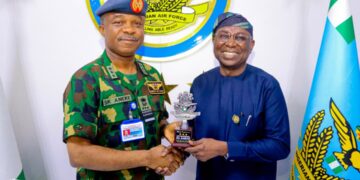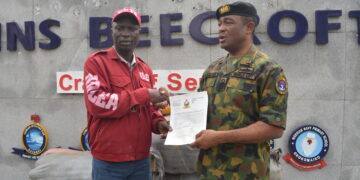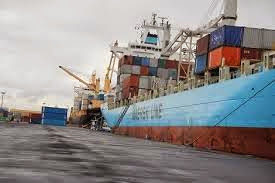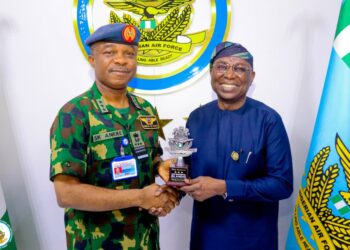Indigenous shipowners on Thursday lamented the deteriorating conditions of seafarers which they attributed to lack of adequate training, saying the only way to address this problem was to encourage Nigerian shipowners to grow their fleet.
The shipowners said that there were about 4,000 acclaimed seafarers in the country whose qualifications were questionable to the extent that Nigerian companies have been left with the challenge of “trying to identify truly well -trained and qualified seafarers to man their ships”.
President of Shipowners Association of Nigeria (SOAN), Engr. Greg Ogbeifun who spoke in Lagos on the occasion of the Seafarers’ Day organised by Maritime Association of Nigeria (MARAN) said the situation was so bad that there were more seafarers now with fake certificates than those with genuine ones.
“The demise of the NNSL and the consequent loss of opportunity for sea-time for budding seafarers and cadets as well as the challenge faced by the Maritime Academy of Nigeria to turn out world class and employable seafarers have been jointly blamed for the dwindled fortunes of seafarers in Nigeria.
“These twin factors have jointly led to mass unemployment as well as the prevalence of fake and ill-trained seafarers. Things have become so bad that the percentage of employable seafarers is very low while the cadets have difficulty getting sea time opportunities, and if they don’t have sea time, they cannot meet the
requirements to sit for their Certificate of Competency,” he said.
requirements to sit for their Certificate of Competency,” he said.
Noting that maritime academies continue to produce hundreds of seafarers every year, among others who have gone for foreign training, he said these seafarers have little or no hope of sea-time opportunities.
Ogbeifun said the shipping industry must be built simultaneously with maritime human capacity if the lot of the seafarer is to improve in Nigeria.
He said the Nigerian Maritime Administration and Safety Agency (NIMASA) being the agency and saddled with the responsibility of maritime labour has to do more than it was doing at the moment for the situation to improve.
According to him, while the National Seafarers Development Programme (NSDP) which has seen many young Nigerians beginning a career in seafaring was commendable, it has failed to meet the yawning of the maritime sector for qualified seafarers due to defects in the programme.
Pointing out that it takes four to five years to train seafarers from cadetship to officer, he said between the inception of the NSDP and now, a very insignificant number of the cadets trained have become officers.
“This shows that there is a problem with the programme. It is not enough to send cadets to foreign maritime institutions, concerted efforts must be made to ensure that they have opportunity for sea-time to enable them to be properly certified,” he said.
On the cabotage regime which is supposed to improve on indigenous shipping development, Ogbeifun said that the policy has done little to build capacity in shipping.
He described as worrisome the fact that about N50bn of the Cabotage Vessel Finance Fund (CVFF) for the development of indigenous shipping has been waiting for years now without disbursement.
“The reason for non-disbursement of this fund has remained a contentious issue,” he said.
He added that there were expectations that reviewing the Cabotage Act in addition to disbursing the CVFF to local shipping companies were necessary to grow indigenous capacity for more jobs.
He also called for political will to get the NNPC and oil majors to give affreightment contacts to indigenous operators; the multiplier effect of more jobs for seafarers would be triggered.
He called for support programmes, including simultation/training centres and facility, seamanship training centre, implementation of policies, rectification/domestication of conversions and regulations, standardization of
training process and incentives for organisations that embark on training as the only way to meet the expected level of competency for seafarers in Nigeria.
Arguing that NIMASA has no business being involved in training of seafarers, he called for the establishment of regulatory agencies similar to the Merchant Navy Training Board in the UK which will mobilize vessel owners
to mandatorily provide and implement training scheme for seafarers from cadetship level to senior deck and engine officers.
He said this can be achieved by harnessing the existing fleet of all industry players, creating a data base of vessels and engaging vessel owners to make available training beds.
He added that government should strive to establish a national fleet while simultaneously providing support funding for their indigenous maritime industry players to acquire more vessels.
He equally said that the private sector should be encouraged to develop marine training facilities like those prevalent in the Philipines and India who were the leading providers of marine officers in the maritime industry.
































































